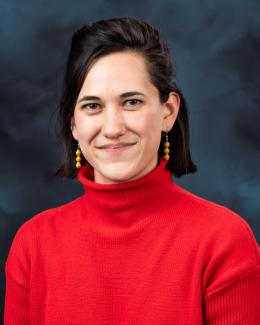
For the first time since 2019, the Quantum Computing User Forum welcomed attendees for an in-person gathering at the Department of Energy’s Oak Ridge National Laboratory from July 17 to 20. Hosted by the Quantum Computing Institute and the Oak Ridge Leadership Computing Facility, the fourth annual event brought together over 100 attendees to discuss the latest developments in quantum computing and to learn about results from projects supported by the OLCF’s Quantum Computing User Program.
“The Quantum Computing User Program is a unique national asset for testing and evaluating state-of-the-art platforms that apply quantum computing to scientific discovery and innovation,” said ORNL’s Travis Humble, QCUP director and one of the organizers for the event.
Over the course of four days, attendees enjoyed expert-led talks, panel discussions and three workshops hosted by quantum industry leaders IBM Quantum, Quantinuum and NVIDIA.
“The Quantum Computing User Forum brought together scientists and vendors working in quantum computing along with those who wanted to learn more about the field, thereby enabling discourse, collaborative discussions and planning for future research,” said Claire Marvinney, event organizer and ORNL research scientist. Other organizers included IT project specialist Josh Cunningham and senior administrative assistant Teresa Hurt.

QCUP, which is funded by DOE’s Advanced Scientific Computing Research program, launched in 2017 and has since grown to close to 400 users worldwide. These users work closely with ORNL liaisons from a variety of scientific domains who help connect them with quantum resources to support their research.
This year’s forum highlighted recent quantum research results through 21 invited talks on topics such as modeling singlet fission, assessing the reliability of noisy quantum computing devices, and studying dense neutrino systems with quantum computers. Rounding out the sessions were two panels with staff from the Science Engagement, Technology Integration, and User Assistance and Software Services groups at ORNL. Each group provided an operational overview of QCUP and shared some of their own quantum computing research.
In addition to users’ talks, four keynote presentations from leading experts in quantum computing covered major developments in the field. Sarah Sheldon from IBM, Jungsang Kim from IonQ, Russell Stutz from Quantinuum and Alex McCaskey from NVIDIA discussed topics such as the capabilities of noisy quantum computers, practical uses for quantum computers, and quantum-accelerated supercomputing.
Workshops led by IBM Quantum, Quantinuum and NVIDIA opened and closed the forum and offered opportunities for hands-on experimentation, development and problem-solving through exercises and test applications. IBM Quantum introduced error mitigation and suppression techniques and dynamic circuits, which are critical components of advanced quantum computing. Quantinuum highlighted the unique features of its H-series trapped ion quantum computers. NVIDIA introduced CUDA Quantum, a programming model and integration platform designed for quantum acceleration of classical computing workflows and applications.
“I thoroughly enjoyed the content, workshops, and ability to interact with attendees, sponsors, and hosts,” said one attendee. “The hands-on workshops provided a rich learning environment and were the perfect balance to gain a better understanding of topics. And the ability to learn more about QCUP and hear from people supporting the systems and users was a nice touch.”
The event also included a poster session that featured 18 displays on various quantum computing topics. These posters were presented by students and staff from universities and companies as nearby as Knoxville and as far away as Germany and England. Seven posters that described research from across the quantum computing field were awarded certificates by a panel of anonymous reviewers.
For more information about QCUP, including how to apply, frequently asked questions and details about the quantum-classical hybrid allocations, visit https://www.olcf.ornl.gov/olcf-resources/compute-systems/quantum-computing-user-program/. Applications are accepted throughout the year.
The OLCF is a DOE Office of Science user facility.
UT-Battelle manages ORNL for the DOE’s Office of Science, the single largest supporter of basic research in the physical sciences in the United States. The Office of Science is working to address some of the most pressing challenges of our time. For more information, please visit https://energy.gov/science.
-Betsy Sonewald


